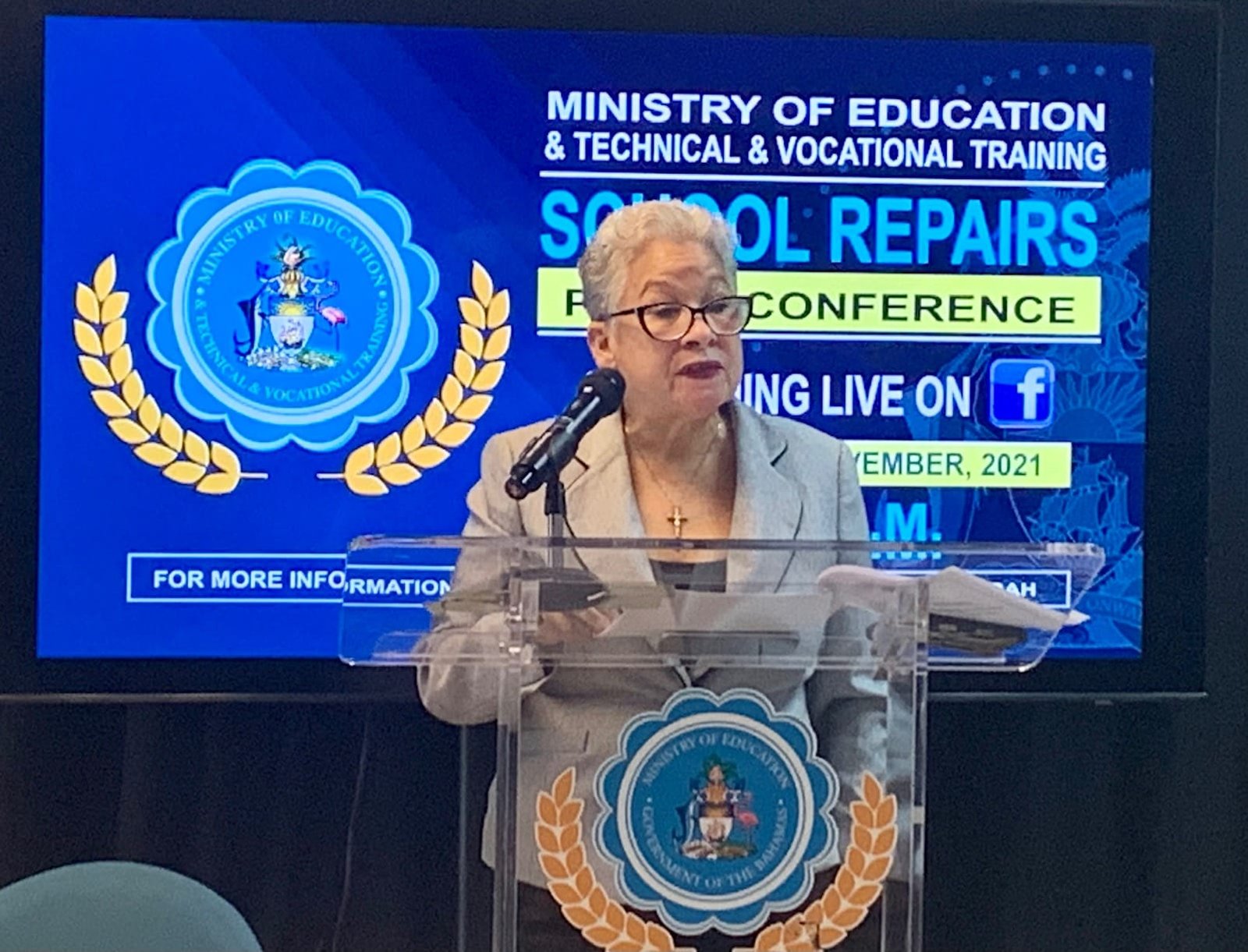Task force to track down and assist 8k students who were inactive on virtual learning platform
NASSAU, BAHAMAS — The Ministry of Education and Technical and Vocational Training is developing a number of strategies to address the loss of education since the onset of the COVID-19 pandemic.
Such measures include diagnostic testing of every child in public school to ascertain the extent of learning loss.
During a national address last night, Education Minister Glenys Hanna-Martin advised that a Learning Recovery Committee has been established to provide recommendations and develop strategies for appropriate responses and learning recovery programmes.

She said these will focus primarily on the foundations of literacy and numeracy and will give educators the opportunity to redress the many longstanding deficiencies in the education system.
Hanna-Martin said she has mandated a revision of High School Diploma requirements and curricula reform, with additional focus on an enhanced platform for technical and vocational training, a more developed physical education programme and a new history curriculum with emphasis on Bahamian history.
Additionally, the revision will include a feeder programme for the creative arts into a new tertiary institute for the performing arts that is now being developed.
Officials hope to focus on six main areas, which include assessing student learning so instruction can be targeted to students’ learning levels and specific needs; investing in digital learning opportunities for all students, ensuring that technology is fit for purpose and focused on enhancing human interaction; and increasing the share of education in the national budget allocation of stimulus packages and tying it to investments mentioned above that can accelerate learning.
The education minister noted that education officials will also reinforce the support that leverages the role of parents, families and communities in children’s learning and ensure that teachers are supported and have access to practical, high-quality professional development opportunities, teaching guides and learning materials.
Hanna-Martin also announced that the government has commissioned a study by the University of The Bahamas (UB), now underway, to identify causative factors for learning outcomes in this country.
She said the findings of this research will help guide future education policy for more positive student attainment.
Hanna-Martin said the Learning Recovery Committee is tasked with identifying all of the children who have been missing from school for extended periods and facilitating appropriate interventions to address learning loss and accelerate learning.
She noted that this may require engagement with tertiary institutions for special programmes for older students.
That task force comprises education professionals, including special education and school psychological services, and involves the Ministry of Social Services and Urban Development; the Office of the Attorney General; the Bahamas Christian Council (BCC); the Ministry of Health and Wellness; the National Training Authority (NTA); representatives of the Bahamas Educators Managerial Union; the Bahamas Union of Teachers (BUT); and the Bahamas Education Counsellors and Allied Workers Union.
According to Hanna-Martin, the task force has been given 14 days to track down some 8,000 students who were inactive on the virtual learning platform throughout the COVID-19 pandemic.






